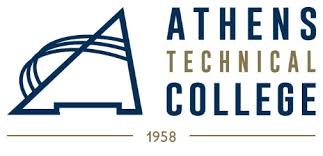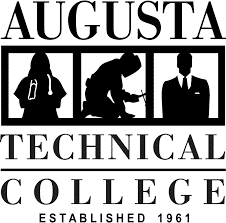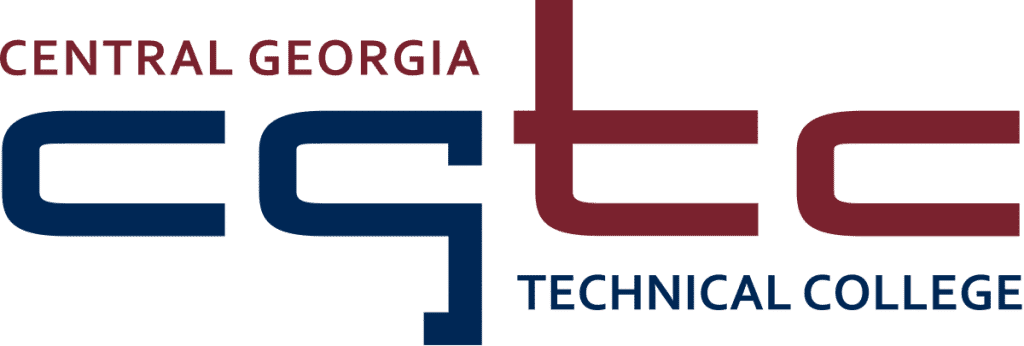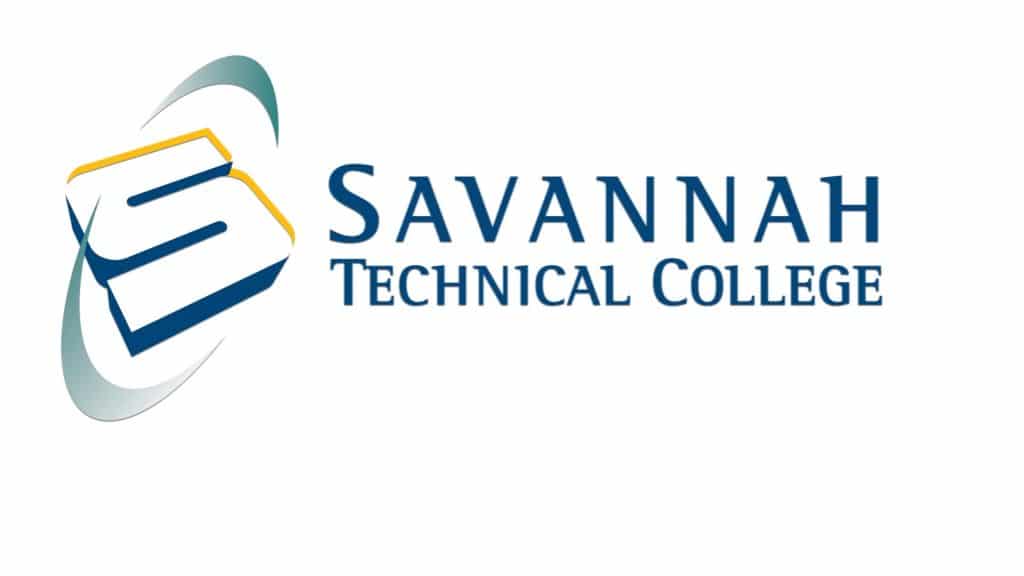Are you interested in working as an HVAC worker in Georgia? The Peach State, as it is sometimes called, has a warm, humid subtropical climate, which is always in need of air conditioning and ventilation systems and people to maintain, install, and repair them.
With the projected growth for HVAC workers in Georgia predicted to grow exponentially over the coming decade, this is the right time to be entering the field. In this article, you will find useful information about the opportunities and requirements to get the education you’ll need for this.

Featured HVAC Schools in Georgia
Requirements to Be an HVAC Tech in Georgia
You don’t have to attend an HVAC program at an educational institution in Georgia to work as an HVAC contractor, but you still need a high school diploma or a GED. You will also need a Conditioned Air Contractor license to work on any conditioned air systems or equipment. Consider also getting a NATE certification, an EPA 608 certification, or both.

Licenses in Georgia are of two types. Under a Class I (restricted) license contractors are allowed to work in conditioned air contracting with equipment under 175,000 BTU for heating and 60,000 BTU for cooling. Class II (unrestricted) allows you to work with any air conditioning equipment and systems. All licenses must be renewed after two years. Current renewal cost is $75.
Both licenses require you to have documented experience as a lead mechanic, service tech, or service supervisor, as well as a board-approved heat loss and gain and a duct design course. The number of years of experience varies with the class of license you want.
A certificate program can be counted as no more than one year of experience
HVAC Tech Salary and Job Prospects in Georgia
HVAC Technicians earn an average yearly salary of $43,960. Salaries typically start at $28,670 and go up to $62,910. In comparison, the median annual wage in the U.S.A. for heating, air conditioning, and refrigeration mechanics and installers was $47,080 in May 2017, according to the Bureau of Labor Statistics.
Employment of heating, air conditioning, and refrigeration mechanics and installers is projected to grow 15 percent from 2016 to 2026, much faster than the average for all occupations. Commercial and residential building construction is expected to drive employment growth and job opportunities for HVAC/R technicians.
Georgia currently ranks in the top ten nationally for career opportunities for HVAC/R technicians.
Top HVAC Schools in Atlanta
Top HVAC School in Atlanta for Techs
Interactive College of Technology (Chamblee Campus)

HVAC/R Diploma Program
The program offers training in repair and maintenance of heating, ventilation, air conditioning, and refrigeration systems. It prepares students for EPA Certifications in the management of refrigerants and NATE Certifications. Both theory and hands-on experience are applied in the applied technical HVAC/R courses. Excellent employment opportunities exist for entry-level positions as an HVAC/R technician or maintenance technician. ICT is one of the only colleges in the country to include industry-required certifications as part of the program.
This HVAC/R program in Atlanta includes an externship program that assigns a student to a partnering company for 135 hours in order to gain field experience, not just in the classroom. ICT helps with job placements, and reports a 100% graduation rate and 100% job placement rate for graduates.
Other Top HVAC Schools and Colleges in Georgia
Athens Technical College

This college offers 3 programs related to HVAC.
Air Conditioning Technology Diploma Program
Requiring a minimum of 51 semester credit hours, it teaches students to install, inspect, and maintain air conditioning and refrigeration systems. In addition, diagnosing and countering air conditioning system problems are taught.
Air Conditioning Electrical Technician Certificate
This 12 semester credit hours program teaches how to take electrical measurements on air conditioning systems, inspect and repair electrical components, and control systems as well as how to diagnose and apply countermeasures for air conditioning system problems.
Air Conditioning System Maintenance Technician Certificate
This 12 semester credit hour program teaches how to apply refrigeration principles and practices to air conditioning systems.
The fees breakdown for the 3 programs is as below:
- Tuition ($89 per credit hour)
- Accident Insurance Fee ($4 per term)
- Instruction Fee ($50 per term)
- Parking Fee ($20 per term)
- Program Supply Fee (Varies)
- Registration Fee ($40 per term)
- Student Activity Fee ($30 per term)
- Technology Fee ($105 per term)
- Textbooks (Approximately $1000 for Air Conditioning Technology, $500 for Air Conditioning Electrical Technician, and $260 for Air Conditioning Systems Maintenance Technician)
- Tools (Approximately $1200 for Air Conditioning Technology, $350 for Air Conditioning Electrical Technician, and $900 for Air Conditioning Systems Maintenance Technician)
Augusta Technical College

Undergraduate Certificate in Air Conditioning Technology – Diploma
This program prepares students for careers in the air conditioning industry, such as technicians who can install, repair, and diagnose HVAC systems. The emphasis of this program is a combination of practical application and air conditioning theory required for successful employment.
Graduates of this program receive an Air Conditioning Technology diploma and are qualified as an air conditioning technician. High school diploma or GED is required to be admitted to the program.
The program length is 18 months (three terms) and requires five credits to complete. It costs $4,903 for in-state tuition and fees, $9,806 for out-of-state tuition and fees, and $1,314 for books and supplies.
Central Georgia Technical College

Central Georgia Technical College is a small public college located in Warner Robins, Georgia. This school presently offers certificates in HVAC and Refrigeration Maintenance Technology and it is accredited with HVAC Excellence. They offer an Air Conditioning Technology Diploma Program and an Air Conditioning Electrical Technician Certificate.
Central Georgia Technical College is very inexpensive: tuition price varies around $7,000 a year.
Lincoln Tech (Marietta, GA)

HVAC Program
This program allows students to choose between day and evening classes. Duration is 48 weeks for day classes and approximately 73 weeks for evening classes.
The HVAC curriculum aims to introduce students to green technology concepts as they apply to HVAC systems. They also learn the fundamental skills required to service, troubleshoot, and repair commercial and residential indoor HVAC air management systems. Students also learn proper refrigerant recovery and recycling techniques and are encouraged to complete the Environmental Protection Agency (EPA) certification testing.
The course covers energy auditing– establishing the source of energy loss and providing solutions for correcting these problems. The classrooms have labs and lectures equipped with walk-in freezers, household furnaces, central air systems, and facilities to simulate ductwork.
Savannah Technical College

Residential Weatherization HVAC Associate Degree
This program teaches students the various areas within a home energy audit. It focuses heavily on the house as a system and in-depth building science. The program lasts four terms and the minimum credit hours for graduation are 60.
HVAC Engineer Salary and Job Prospects in Georgia
Mechanical engineers can go on to join the HVAC industry after completing their undergraduate degree. But most engineers who intend to work in the industry do not pursue studies beyond a Master of Science degree. Interestingly, a Master’s degree can impact your earning power significantly. The National Association of Colleges and Employers reported that mechanical engineers with a master’s degree started at an average of $75,700 – which is much more than the starting salary of mechanical engineers with a bachelor’s degree, $61,300.
Unfortunately, the projected outlook for this field is lower than the national average of 7%. According to the BLS, employment of mechanical engineers is projected to grow by 5% from 2014-2024.
HVAC engineers usually need to be licensed in their state to work on projects for customers. Engineers can take the Fundamentals of Engineering exam to become Engineers in Training, then after gaining experience, they can take the Principles and Practice of Engineering exam and gain the title of Professional Engineer.
Top Colleges and Universities for HVAC Engineers in Georgia
Georgia Tech

Bachelors of Science in Mechanical Engineering
This program was ranked as #3 for its Mechanical Engineering Undergraduate Program in the 2017 US News & World Report. Students can participate in any combination of undergraduate research, study abroad, work abroad, internships, co-operative work assignments, and the BS/MS program. The minimum credits needed to graduate are 129.
Kennesaw State University

Bachelor of Science in Mechanical Engineering
Graduates of this program can demonstrate particular competence in the areas of communication, fiscal management, and project control. It is tailored to develop professionals who can handle the technical and managerial aspects of mechanical engineering projects and can serve in key leadership positions within the engineering profession.
The Bachelor of Science in Mechanical Engineering program is accredited by the Accreditation Board for Engineering and Technology ABET. Students need a minimum of 130 Credit Hours to graduate.
Georgia Southern University

Bachelor of Science in Mechanical Engineering (BSME)
The Bachelor of Science in Mechanical Engineering (BSME) program at Georgia Southern University provides a more personal experience than other schools. All mechanical engineering courses are taught exclusively by faculty, not teaching assistants. The program is accredited by the Accreditation Board for Engineering and Technology (ABET).
Students are encouraged to participate in undergraduate research and in international automotive and engineering design competitions. Faculty members mentor interested students in research projects and provide opportunities for professional development through technical presentations and publications at National Academic and Industry Conferences.
Mercer University

Bachelor of Science in Engineering (BSE) in Mechanical Engineering
The BSE degree is accredited by the Engineering Accreditation Commission of ABET and the school has small classes (generally less than 25 students), all taught by professors. The engineering school at Mercer is “one of the best undergraduate engineering programs in the Southeast” as identified by U.S. News and World Report.
Mechanical engineering students learn the principles of statics, dynamics, solid mechanics, machine design, thermodynamics, fluids mechanics, heat transfer, and materials science for the design and analysis of practical engineering systems. They also study the fundamentals of engineering, and the use of these principles to reach optimal design solutions for engineering problems.
Full List of GA HVAC Training Schools
| 1560 Metropolitan Pkwy SW Atlanta, GA 30310-4446 | 404-225-4400 | ||
| 80 Cohen Walker Drive Warner Robins, GA 31088 | 478-757-3400 | ||
| 5303 New Peachtree Rd Chamblee, GA 30341 | 770-216-2960 | ||
| 980 S Cobb Drive Dr SE Marietta, GA 30060 | 770-975-4064 | ||
| 1704 South Slappey Boulevard Albany, GA 31701 | 229-430-3500 | ||
| 5150 Sugarloaf Parkway Lawrenceville, GA 30043-5702 | 770-962-7580 | ||
| 5717 White Bluff Rd Savannah, GA 31405-5594 | 912-443-5700 | ||
| 928 Manchester Expy Columbus, GA 31904-6572 | 706-649-1800 | ||
| 1701 Carswell Ave Waycross, GA 31503 | 912-287-5818 | ||
| 495 N Indian Creek Dr Clarkston, GA 30021-2397 | 404-297-9522 | ||
| 800 U.S. Hwy 29 North Athens, GA 30601 | 706-355-5000 | ||
| 501 Varsity Rd Griffin, GA 30223-2042 | 770-228-7348 | ||
| 4089 Val Tech Rd Valdosta, GA 31602 | 229-333-2100 | ||
| 176 Murphy Campus Blvd. Waco, GA 30182 | 770-537-6000 | ||
| 2359 Windy Hill Road Marietta, GA 30067 | 770-226-0056 | ||
| 2108 Cobb Parkway Smyrna, GA 30080-7630 | 770-980-0002 | ||
| 3200 Augusta Tech Drive Augusta, GA 30906 | 706-771-4000 | ||
| 1189 Deepstep Rd Sandersville, GA 31082 | 478-553-2050 | ||
| 1500 Georgia Hwy 197 N Clarkesville, GA 30523 | 706-754-7700 | ||
| One Joseph E. Kennedy Blvd Statesboro, GA 30458 | 912-681-5500 | ||
| 900 South GA Tech Parkway Americus, GA 31709 | 229-931-2394 | ||
| 2990 Landrum Education Dr Oakwood, GA 30566 | 770-531-6300 | ||
| One Maurice Culberson Drive Rome, GA 30161 | 706-295-6963 | ||
| 800 Veterans Parkway North Moultrie, GA 31788 | 229-891-7000 | ||
| 15689 US Hwy 19 North Thomasville, GA 31792-9960 | 229-225-4096 | ||
| 3001 E First St Vidalia, GA 30474 | 912-538-3100 | ||
| 2802 Moore Hwy Tifton, GA 31793-2601 | 229-391-5001 |
Conclusion
If you’re considering a career in HVAC and want to pursue this in Georgia, then the list of schools above is a good place to start. Check to ensure you meet the qualifications for getting licensed as an HVAC professional in this state and plan for the exams accordingly.
Keep in mind that you should only choose an accredited university with good facilities and faculty. For more details on what is offered, you should try to visit the campus and get a first-hand overview of the program and the curriculum.
